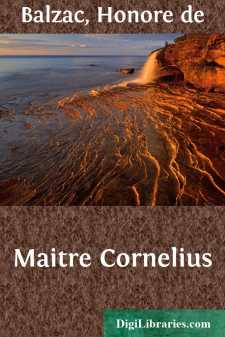Categories
- Antiques & Collectibles 13
- Architecture 36
- Art 48
- Bibles 22
- Biography & Autobiography 813
- Body, Mind & Spirit 142
- Business & Economics 28
- Children's Books 17
- Children's Fiction 14
- Computers 4
- Cooking 94
- Crafts & Hobbies 4
- Drama 346
- Education 46
- Family & Relationships 57
- Fiction 11829
- Games 19
- Gardening 17
- Health & Fitness 34
- History 1377
- House & Home 1
- Humor 147
- Juvenile Fiction 1873
- Juvenile Nonfiction 202
- Language Arts & Disciplines 88
- Law 16
- Literary Collections 686
- Literary Criticism 179
- Mathematics 13
- Medical 41
- Music 40
- Nature 179
- Non-Classifiable 1768
- Performing Arts 7
- Periodicals 1453
- Philosophy 64
- Photography 2
- Poetry 896
- Political Science 203
- Psychology 42
- Reference 154
- Religion 513
- Science 126
- Self-Help 84
- Social Science 81
- Sports & Recreation 34
- Study Aids 3
- Technology & Engineering 59
- Transportation 23
- Travel 463
- True Crime 29
Sort by:
by:
Honore de Balzac
MADAME FIRMIANI Many tales, either rich in situations or made dramatic by some of the innumerable tricks of chance, carry with them their own particular setting, which can be rendered artistically or simply by those who narrate them, without their subjects losing any, even the least of their charms. But there are some incidents in human experience to which the heart alone is able to give life; there...
more...
by:
Honore de Balzac
I. THE TALISMAN Towards the end of the month of October 1829 a young man entered the Palais-Royal just as the gaming-houses opened, agreeably to the law which protects a passion by its very nature easily excisable. He mounted the staircase of one of the gambling hells distinguished by the number 36, without too much deliberation. "Your hat, sir, if you please?" a thin, querulous voice called...
more...
by:
Honore de Balzac
MASSIMILLA DONI As all who are learned in such matters know, the Venetian aristocracy is the first in Europe. Its Libro d'Oro dates from before the Crusades, from a time when Venice, a survivor of Imperial and Christian Rome which had flung itself into the waters to escape the Barbarians, was already powerful and illustrious, and the head of the political and commercial world. With a few rare...
more...
by:
Honore de Balzac
A MAN OF BUSINESS The word lorette is a euphemism invented to describe the status of a personage, or a personage of a status, of which it is awkward to speak; the French Academie, in its modesty, having omitted to supply a definition out of regard for the age of its forty members. Whenever a new word comes to supply the place of an unwieldy circumlocution, its fortune is assured; the word lorette has...
more...
by:
Honore de Balzac
CHAPTER I. A CHURCH SCENE OF THE FIFTEENTH CENTURY In 1479, on All Saints' day, the moment at which this history begins, vespers were ending in the cathedral of Tours. The archbishop Helie de Bourdeilles was rising from his seat to give the benediction himself to the faithful. The sermon had been long; darkness had fallen during the service, and in certain parts of the noble church (the towers of...
more...
by:
Honore de Balzac
CHAPTER I. PRO AND CON Monsieur de Manerville, the father, was a worthy Norman gentleman, well known to the Marechael de Richelieu, who married him to one of the richest heiresses of Bordeaux in the days when the old duke reigned in Guienne as governor. The Norman then sold the estate he owned in Bessin, and became a Gascon, allured by the beauty of the chateau de Lanstrac, a delightful residence owned...
more...
by:
Honore de Balzac
I In September, 1835, one of the richest heiresses of the faubourg Saint-Germain, Mademoiselle du Rouvre, the only daughter of the Marquis du Rouvre, married Comte Adam Mitgislas Laginski, a young Polish exile. We ask permission to write these Polish names as they are pronounced, to spare our readers the aspect of the fortifications of consonants by which the Slave language protects its...
more...
by:
Honore de Balzac
PIERRE GRASSOU Whenever you have gone to take a serious look at the exhibition of works of sculpture and painting, such as it has been since the revolution of 1830, have you not been seized by a sense of uneasiness, weariness, sadness, at the sight of those long and over-crowded galleries? Since 1830, the true Salon no longer exists. The Louvre has again been taken by assault,—this time by a populace...
more...
by:
Honore de Balzac
I. THE LORRAINS At the dawn of an October day in 1827 a young fellow about sixteen years of age, whose clothing proclaimed what modern phraseology so insolently calls a proletary, was standing in a small square of Lower Provins. At that early hour he could examine without being observed the various houses surrounding the open space, which was oblong in form. The mills along the river were already...
more...
by:
Honore de Balzac
THE MESSAGE I have always longed to tell a simple and true story, which should strike terror into two young lovers, and drive them to take refuge each in the other's heart, as two children cling together at the sight of a snake by a woodside. At the risk of spoiling my story and of being taken for a coxcomb, I state my intention at the outset. I myself played a part in this almost commonplace...
more...











